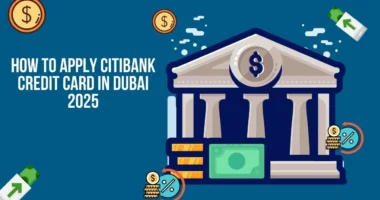Hey, so finance tech is on the brink of some crazy changes by 2025. We’re talking about stuff that’s not just cool but could totally change how we deal with money and banks. From AI doing more than just crunching numbers to digital currencies that might replace cash, the future looks like something out of a sci-fi movie. And don’t even get me started on how things like blockchain and quantum computing are stepping into the game. It’s like the wild west of finance, and we’re all just along for the ride.
Key Takeaways
- AI is set to transform risk management and customer service in finance.
- Decentralized finance and blockchain are pushing traditional banks to adapt.
- Central Bank Digital Currencies are gaining traction worldwide.
- Sustainable finance is becoming a major focus, with green fintech solutions on the rise.
- Quantum computing is emerging as a game-changer for financial security.
AI Transformations in Finance Tech
AI in Risk Management and Fraud Detection
In 2025, AI is becoming a true game-changer in risk management and fraud detection. Financial institutions are increasingly relying on AI to process massive amounts of data quickly and accurately. This helps them spot suspicious activities that might go unnoticed by human analysts. AI systems can learn from past fraud patterns and adapt to new tactics used by fraudsters, making them indispensable tools in the fight against financial crime. With AI, banks can reduce losses and protect their customers more effectively.
Generative AI for Financial Planning
Generative AI is stepping into the limelight as a powerful tool for financial planning. It’s not just about crunching numbers anymore; AI can now offer personalized advice tailored to individual financial goals and circumstances. Imagine AI helping you plan for retirement or a big purchase by analyzing your spending habits and predicting future trends. This technology is making financial planning more accessible and less daunting for everyone.
AI-Powered Customer Service Innovations
AI is revolutionizing customer service in the finance sector. Chatbots and virtual assistants are getting smarter, capable of handling complex inquiries and providing personalized support 24/7. These AI tools can anticipate customer needs, offering solutions before a problem even arises. As a result, customer satisfaction is on the rise, and financial institutions are saving on operational costs. The future of customer service is here, and it’s powered by AI.
Decentralized Finance: A New Era
Blockchain’s Role in Financial Transparency
Blockchain technology is changing the game when it comes to financial transparency. By using a decentralized ledger system, blockchain ensures that every transaction is recorded and visible to all participants. This openness helps prevent fraud and reduces the risk of manipulation. In 2025, more financial institutions are expected to adopt blockchain to enhance transparency and trust with their clients.
The Rise of Decentralized Finance Platforms
Decentralized finance, or DeFi, platforms are gaining traction as they offer financial services without relying on traditional banks. These platforms use smart contracts to automate processes like lending, borrowing, and trading. As a result, users can access financial services more quickly and with fewer fees. This shift is empowering individuals to take control of their finances.
Challenges and Opportunities in DeFi
Despite its benefits, DeFi faces several challenges. Security remains a major concern, as hackers continue to target vulnerable systems. Additionally, regulatory issues are emerging as governments try to keep up with the rapid growth of DeFi. However, the opportunities are vast. DeFi can provide financial services to underserved populations and foster innovation in the financial sector.
In a world where traditional financial systems often fail to meet the needs of everyone, DeFi offers a glimpse of a more inclusive future. By breaking down barriers and promoting transparency, decentralized finance has the potential to reshape the financial landscape. While challenges exist, the promise of a more equitable financial system is within reach.
The Impact of Central Bank Digital Currencies

Central Bank Digital Currencies (CBDCs) are like digital cash, but backed by a country’s central bank. In 2025, these currencies are not just a concept—they’re becoming a reality in many parts of the world. CBDCs are set to change the way we think about money, making transactions faster and more secure.
CBDCs and Their Global Adoption
The adoption of CBDCs is picking up speed globally. Over 130 countries, including the USA and UK, are exploring or already implementing CBDCs. This move is not just about keeping up with digital trends; it’s about maintaining control over national currencies in a world where digital payments are becoming the norm. Countries are realizing that a retail central bank digital currency (CBDC) can preserve the integrity of money in our rapidly digitalizing payment environment.
Digital Currencies vs. Traditional Banking
Digital currencies are shaking up traditional banking systems. Unlike traditional money, CBDCs offer the convenience of digital transactions without the need for a bank account. This means easier access to money for people who are “unbanked”—those without access to traditional banking services. However, this shift also poses challenges for banks, which must adapt to a new role in the financial ecosystem.
Security and Privacy Concerns with CBDCs
While CBDCs promise enhanced security, they also raise privacy concerns. The digital nature of these currencies means that every transaction could potentially be tracked by the government. This has sparked debates about the balance between security and privacy. People are worried about how much control governments might have over their financial data. However, proponents argue that CBDCs could actually reduce fraud and increase financial transparency.
Sustainable Finance and Ethical Investments
Green Fintech Solutions
In 2025, green fintech is seeing a massive upswing. Consumers are all about eco-friendly financial services. Banks are jumping on this trend by adding features like carbon footprint tracking to their apps. This isn’t just a fad—it’s a real demand from people who want to know how their spending affects the planet. As more folks focus on sustainability, fintech companies that offer these solutions are in a strong position to grow.
ESG-Focused Investment Opportunities
Investors today are keen on opportunities that align with environmental, social, and governance (ESG) criteria. This shift is driving the rise of sustainable bonds and funds that promise not just good returns but also a positive impact on society and the environment. For those looking to invest in a way that reflects their values, ESG options are becoming more mainstream and accessible.
Transparency in Sustainable Finance
Transparency is key when it comes to sustainable finance. People want to know exactly where their money is going and what impact it’s having. Financial institutions are now expected to disclose data about energy use and carbon emissions tied to their transactions. This kind of openness helps customers make informed choices about their investments and spending.
In a world increasingly concerned with climate change, sustainable finance isn’t just a niche market—it’s becoming the norm. As we move forward, the demand for ethical investments will likely continue to grow, pushing more companies to adopt transparent practices and green solutions.
Quantum Computing in Financial Services
Quantum Computing for Risk Analysis
Quantum computing is all about speed and complexity. It processes data in ways that make traditional computers look like they’re crawling. For finance, this means quicker and more accurate risk assessments. Imagine being able to predict market changes or assess portfolio risks almost instantly. With quantum computing, this isn’t just a dream—it’s a near-future reality.
Future-Proof Encryption with Quantum Technology
Security in finance is paramount, and quantum computing is set to revolutionize it. Current encryption methods might soon be outdated, as quantum computers can potentially break them with ease. This is where quantum-resistant cryptography comes in, offering a new layer of protection for sensitive data. Financial institutions are already preparing for this shift, ensuring that their data remains secure in a quantum future.
Quantum Finance: Opportunities and Challenges
Quantum computing opens up a world of possibilities for finance, but it also brings challenges. The potential for real-time fraud detection and improved trading algorithms is huge. However, the technology is still in its early days, and there are hurdles to overcome, like high costs and technical complexities. As FinTech Futures highlights, understanding the operational benefits and risks is crucial for financial services looking to integrate quantum computing into their systems.
The Evolution of WealthTech
WealthTech is changing the game for investors and financial advisors alike. It’s all about making investing easier and more accessible for everyone. Let’s explore some key innovations.
AI-Powered Robo-Advisors
AI-powered robo-advisors are like a personal finance assistant in your pocket. They use complex algorithms to manage and optimize your investment portfolio automatically. These tools are making financial planning more accessible than ever before. You don’t need to be a finance expert to start investing wisely. Here’s how they work:
- Data Analysis: They analyze vast amounts of financial data to offer personalized investment advice.
- Portfolio Management: Automatically rebalance portfolios to align with your financial goals.
- Cost Efficiency: Typically, they charge lower fees compared to traditional financial advisors.
Fractional Investment Platforms
Fractional investment platforms let you own a piece of the pie without buying the whole thing. This means you can invest in expensive stocks like Amazon or Google without needing thousands of dollars upfront. Fractional shares are changing the way people think about investing. Here’s why they’re popular:
- Affordability: Buy fractions of high-priced stocks.
- Diversification: Spread your investments across various assets.
- Flexibility: Invest small amounts regularly to build a diverse portfolio over time.
Democratizing Wealth Management
Wealth management isn’t just for the rich anymore. Thanks to technology, more people can access sophisticated financial services. This democratization is leveling the playing field, offering everyone the chance to grow their wealth. Key benefits include:
- Access to Tools: Use advanced financial tools that were once only available to high-net-worth individuals.
- Education Resources: Learn about investing through interactive platforms and tutorials.
- Community Engagement: Join investment communities to share insights and strategies.
WealthTech is not just a trend; it’s reshaping the financial landscape. With AI-powered tools and fractional investments, the barriers to entry are lower, and the opportunities are greater. Everyone deserves a chance to build their financial future.
Next-Gen Banking Services and Super-Apps

The Rise of Financial Super-Apps
In 2025, financial super-apps are becoming the go-to platforms for managing everything from payments to lifestyle needs. These apps, like WeChat and PayTm, are not just about banking; they merge financial services with social networking, shopping, and even booking rides. Imagine handling your finances, chatting with friends, and ordering dinner all in one place. This integration is pulling users away from traditional banks, offering a one-stop solution that simplifies life.
Integrating Lifestyle and Financial Services
Super-apps are blurring the lines between lifestyle and finance. Users can pay bills, invest, and shop without switching apps. This seamless experience is achieved through partnerships with various service providers, offering users more than just banking. Convenience is the keyword here, as these apps aim to cover every aspect of a user’s daily routine. It’s like having a Swiss Army knife for your digital life.
Challenges for Traditional Banks
Traditional banks are feeling the heat as these super-apps gain popularity. They face the challenge of rapidly innovating to keep up with the tech-savvy competition. Banks need to rethink their strategies, possibly partnering with tech firms or developing their own digital platforms to stay relevant. The future calls for a shift from traditional banking models to more tech-driven solutions, or they risk being left behind in the digital revolution.
The financial landscape is changing faster than ever, and those who adapt will thrive. Super-apps are not just a trend; they’re the future of banking, offering a glimpse into a world where all our needs are met with a few taps on our phones.
Cybersecurity and Resilience in Finance Tech
Building Cyber Preparedness
In 2025, the financial sector is more vulnerable to cyber threats than ever. As digital transactions become the norm, so do the risks. Financial institutions are prioritizing cyber preparedness by investing in advanced security frameworks. It’s not just about technology; it’s about mindset. Companies are training employees to recognize and respond to threats, ensuring that everyone plays a role in safeguarding data.
A few key elements of cyber preparedness include:
- Regular security audits to identify vulnerabilities.
- Implementing multi-factor authentication for all systems.
- Conducting ongoing cybersecurity training for staff.
Resilience in the Face of Global Threats
Resilience is about bouncing back, and in finance, it’s crucial. Whether dealing with a cyberattack or a natural disaster, having a solid plan is vital. Financial institutions are developing robust contingency strategies to maintain operations under pressure. This involves cross-training employees and establishing backup systems to keep things running smoothly.
In uncertain times, the ability to adapt and recover swiftly is what separates the resilient from the rest.
The Role of AI in Cybersecurity
AI is stepping up as a key player in cybersecurity. With its ability to analyze vast amounts of data quickly, AI helps detect unusual patterns that might indicate a security breach. Machine learning algorithms are becoming more sophisticated, improving the accuracy of threat detection and response. However, it’s a double-edged sword—while AI strengthens defenses, it also presents new challenges as cybercriminals find ways to exploit it.
In conclusion, as technology evolves, so do the threats. Financial institutions must stay ahead by building robust cybersecurity measures and fostering a culture of resilience.
Conclusion
As we look towards 2025, the world of finance is on the brink of a major transformation. With technology advancing at a breakneck pace, the financial landscape is set to change in ways we can only begin to imagine. From AI-driven solutions that promise to streamline operations and enhance security, to the rise of digital currencies and sustainable finance, the future is both exciting and challenging. Traditional banks and fintech companies alike must embrace these changes, working together to create a more inclusive and efficient financial ecosystem. The resilience shown by the industry in recent years provides a solid foundation for the innovations to come. As these trends unfold, they will not only reshape the way we interact with money but also pave the way for a more sustainable and accessible financial future.
Frequently Asked Questions
What is the role of AI in finance by 2025?
AI is set to change finance by improving customer service, helping with financial planning, and making risk management better. It will also help detect fraud more easily.
How will decentralized finance (DeFi) affect traditional banks?
DeFi will push traditional banks to change how they work. It uses blockchain to make finance more open and accessible, which might make banks rethink their services.
What are Central Bank Digital Currencies (CBDCs)?
CBDCs are digital forms of money made by governments. They are like cryptocurrencies but are safe and stable because they are backed by central banks.
Why is sustainable finance important?
Sustainable finance helps the planet by supporting eco-friendly projects. It lets people invest in ways that are good for the environment and society.
What can quantum computing do for finance?
Quantum computing can solve very hard problems quickly. In finance, it can help with risk analysis, secure data better, and improve trading strategies.
What are super-apps in banking?
Super-apps combine many services in one place. In banking, they let you manage money, pay bills, and even shop, all from one app, making life easier.










1 comment